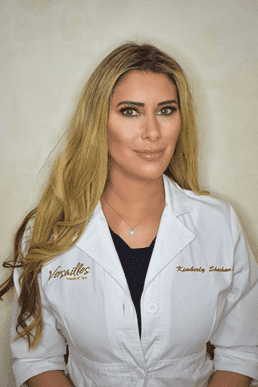At Versailles Medical Spa, we offer comprehensive hormone therapy for both men and women, designed to restore balance and improve overall well-being. Our bioidentical hormone therapy is a natural solution for hormonal imbalances, helping women manage menopause symptoms with targeted menopause treatments that address hot flashes, mood swings, and more. For men in Darien, CT, our bioidentical hormone therapy for men restores testosterone levels through customized andropause therapy, alleviating symptoms such as fatigue and reduced energy. Hormone replacement therapy at Versailles Medical Spa also supports weight loss, boosts energy, improves sleep, and enhances mood. Whether you’re seeking natural solutions for hormonal imbalance or hormone replacement therapy for energy and weight loss, our medical spa offers affordable and personalized treatment plans. As the best medical spa for hormone therapy in Darien, we are committed to helping you feel your best at every stage of life.












